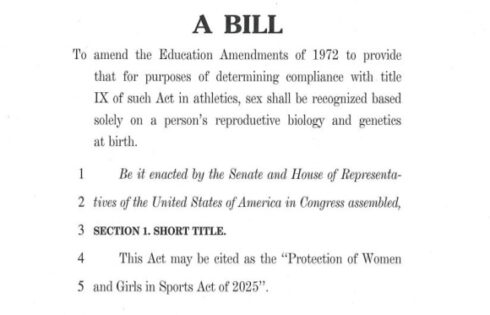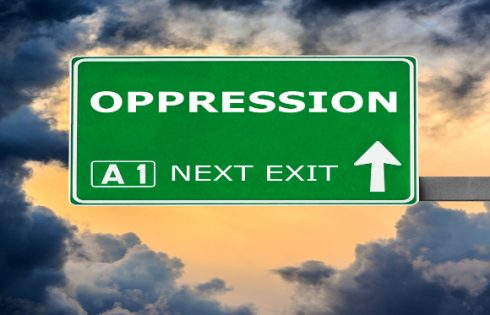Columbia University has no comment about the future of ROTC on campus beyond their last statement on the matter in 2008, according to Director of Media Relations Robert Hornsby.
This week, the Pentagon allowed openly gay men and women to enlist in the armed forces, following a ruling that said the Don’t Ask, Don’t Tell policy was unconstitutional. Wednesday evening, the U.S. Court of Appeals for the Ninth Circuit reinstated the policy by granting the Defense Department’s emergency request for a stay.
The university statement (see full text below), made by Columbia president Lee Bollinger more than two years ago, outlines a variety of concerns. In it, Bollinger describes financial issues for the Department of Defense and a 2005 university faculty vote that denied ROTC’s return.
“The predominant reason (for the vote) was one of adhering to a core principle of the University: that we will not have programs on the campus that discriminate against students on the basis of such categories as race, gender, military veteran status, or sexual orientation,” the statement reads.
Last month, Bollinger told students that Don’t Ask, Don’t Tell troubled him and many others with the university.
“Of course I value the military enormously, but I do not think that as part of our academic program we should have a program that discriminates against any of our students,” he said. He also said that the ROTC’s return will have to be re-evaluated if Don’t Ask, Don’t Tell is eliminated.
Four Ivy League schools — Harvard, Yale, Columbia and Brown — as well as a handful of other elite universities, like Stanford, do not currently have ROTC programs on campus. Largely Vietnam-era policies at the outset, in recent years, Don’t Ask, Don’t Tell has become the centerpiece of the universities’ opposition to on-campus ROTC programs because it conflicts with many anti-discrimination university policies.
Columbia has a dozen ROTC participants currently, who take courses through the regional program at Fordham University, as well as roughly 350 student veterans. Last month a group of 20 professors took out an ad in the Columbia Spectator advocating for ROTC’s return.
“It is by no means clear that the military services want to return,” said Allan Silver last month, a professor emeritus of sociology at Columbia . Silver was one of the professors who signed the petition to bring ROTC back.
“They have budgetary problems, especially with the high cost of ROTC fellowships at Ivy institutions,” he said. “Some in the services nurse grudges from the Vietnam period and are culturally more comfortable elsewhere.”
The statement is below:
Statement Regarding ROTC and the Campus
September 25, 2008
Dear fellow member of the Columbia community:
Now that the glow, and the dust, of the nationally broadcast ServiceNation Presidential Forum has settled just a bit, I want to respond to one issue that emerged in the discussions, namely the role of ROTC and the campus.
First, let me say that Columbia University has a long and continuing tradition of making special efforts to open its doors to men and women with military service. For example, there are more than 50 veteran service men and women currently enrolled in our School of General Studies, many of whom have recently returned from active duty in Iraq and Afghanistan, including 19 incoming students this year alone. The School of General Studies was founded in 1947 largely to enable veterans of War World II to secure an Ivy League education. While we certainly have many veterans attending the University’s many graduate schools, we are very proud of the fact that General Studies continues actively to recruit military veterans as part of its mission of providing a Columbia education to a wide diversity of nontraditional undergraduates.
Second, as some of you may already know, it is inaccurate to say that Columbia students do not have ROTC available to them. In fact, the University has continued to facilitate the participation of interested students who, like their peers at almost every other New York area college, take part in one of two regional magnet ROTC sites at Fordham and St. John’s. These Columbia students receive the same scholarship benefits as those at schools that formally host ROTC.
Third, it should be noted that, as the Wall Street Journal reported last year, the Department of Defense (DOD) has, for its own fiscal reasons, instituted a policy of aggregating small numbers of ROTC students in urban areas into pooled programs on a limited number of campuses. Currently, five Columbia students are enrolled in the New York regional ROTC program at Fordham. As a result, it is not at all clear whether a change of policy would have any impact on the current practice of having our students travel to one of the other campus ROTC sites, as do virtually all other students at New York area colleges and many others across the nation.
Finally, in 2005, the University Senate voted overwhelmingly against formally inviting ROTC onto campus. Senate members may have had a variety of reasons for their votes, but the record and official reports make it reasonably clear that the predominant reason was one of adhering to a core principle of the University: that we will not have programs on the campus that discriminate against students on the basis of such categories as race, gender, military veteran status, or sexual orientation. Under the current “Don’t Ask, Don’t Tell” policy of the Defense Department, openly gay and lesbian students could or would be excluded from participating in ROTC activities. That is inconsistent with the fundamental values of the University. A number of our peer institutions have taken a similar position.
In closing, let me just say that this issue is a serious one deserving of our full and continuous attention. The University, as such, does not take positions on major public issues, except as they pertain directly to our own policies, so that is not the question at stake here. The University must, however, operate according to its basic norms and principles in fulfilling our mission of research, teaching, and public service. Along with everything else, these, too, are open for robust discussion and debate-including how we define, articulate, and apply those principles. We should always welcome discussion, but we should also always try to live up to the ideals we agree on.
Sincerely,
Lee C. Bollinger
President
Like The College Fix on Facebook / Follow us on Twitter





Please join the conversation about our stories on Facebook, Twitter, Instagram, Reddit, MeWe, Rumble, Gab, Minds and Gettr.